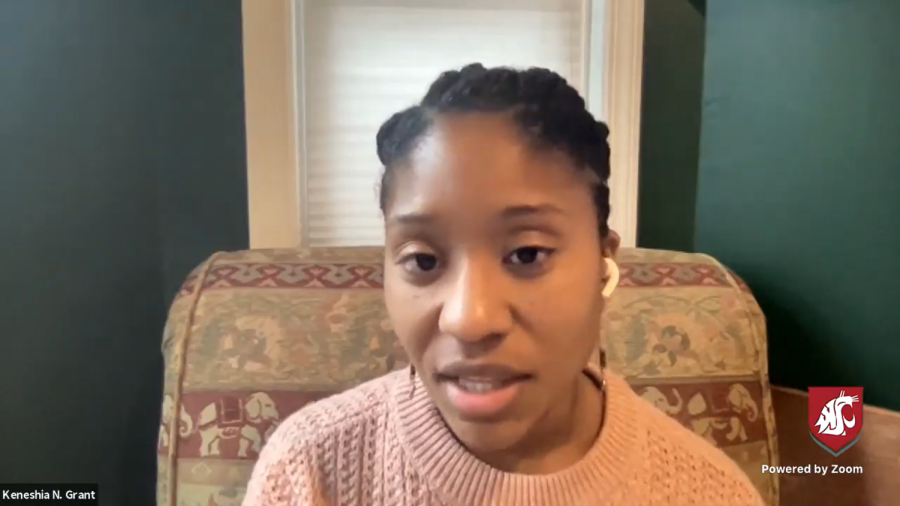Black migration ‘creates new possibilities in American politics,’ speaker says
Howard University professor spoke about Black voter influence on American politics, Great Migration effects on presidential campaigns
Voter suppression continues to be an issue around the country, says Keneshia Grant, associate professor of political science at Howard University.
January 27, 2021
One professor addressed how critical the Black vote is to presidential candidates’ success and the effect migration patterns have on American politics during a virtual event Tuesday afternoon.
WSU’s Martin Luther King Program co-sponsored the event, “Relocation and Realignment: How Black migration shapes American politics.” The Thomas S. Foley Institute hosted the event through a livestream on YouTube.
Keneshia Grant, associate professor of political science at Howard University, said the outcome of a presidential election relies heavily on the electoral college. The states with the most influence over the electoral college include California, Texas, Florida and New York.
A majority of America’s Black population lives in those states, she said.
Black populations began to increase in those states during the Great Migration of the 1900s when many Black people migrated to the north and west in search of greater freedoms, Grant said.
Political candidates have campaigned strongly for the Black vote in those states since the Great Migration, she said.
Migrants wanted to escape the fears that came with living in a Jim Crow society and felt they could do that by moving to the north. Grant said people left home, looking to provide better education for their children and a place that would not limit their citizenship as it had in the past.
Like in the south, attempts were made in the north to suppress Black voters, Grant said.
“The North had its problems, too,” she said.
Voter suppression continues to be an issue around the country, Grant said.
Over time, most of the Black voters moved north. Democrats saw the importance of securing Black people’s votes to meet their electoral goals, she said.
At times, a candidate’s success relied upon Black people’s votes, but the candidate would deny this after the election and not follow through on promises made to the Black community. While this was not always the case, it was common, Grant said.
In recent years, Americans have seen new migration trends; there are now waves of Black people moving back to the south. Grant said this trend is called return migration. People who settled in cities like New York, Chicago and Detroit moved back to cities like Atlanta, Dallas and Houston.
“Return migration creates new possibilities in American politics,” Grant said.
As people began to return to the south, the region saw the first Black democratic candidates win nominations for their southern states’ party. Grant said the trend brought more democratic and liberal Black voters to the south, diversifying the political palette.
Some predominantly red southern states are transitioning into a blue era, she said.
“Black people are implicitly arguing for a more active government,” she said. “The Republican Party is moving away from this idea.”
Grant said the Republican Party could appeal to Black voters by making them feel safer. A large population sees republicans as a racist party; the party needs to change this perception created by the actions of its older, white members.









